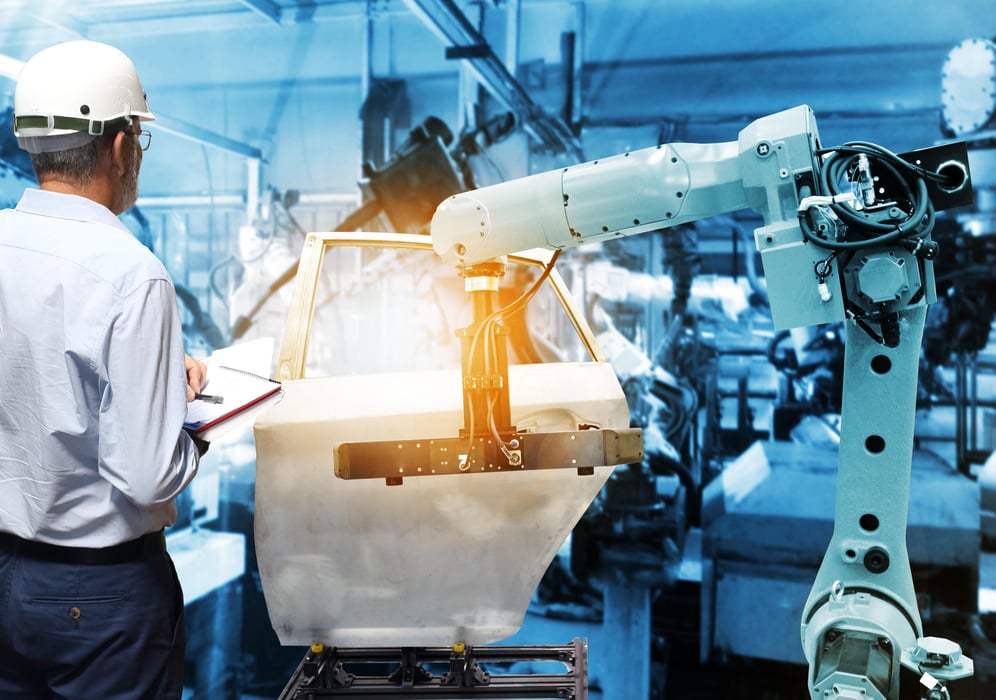Fears of Robots Taking Jobs Are Common, But May Be Unrealistic

WEDNESDAY, Oct. 12, 2022 (HealthDay News) -- As some workplaces have added robots to the crew, workers in the United States and parts of Asia are feeling uneasy.
Concerns about robots also happen even in industries where they’re not used yet, according to new research.
“Some economists theorize that robots are more likely to take over blue-collar jobs faster than white-collar jobs,” said lead researcher Kai Chi Yam, an associate professor of management at the National University of Singapore. “However, it doesn’t look like robots are taking over that many jobs yet, at least not in the United States, so a lot of these fears are rather subjective.”
For the study, the researchers looked at robots and employee feelings about them through experiments with participants in the United States, Singapore, India and Taiwan.
In an experiment with 118 engineers at an Indian auto manufacturing company, working with industrial robots was linked to more reports of burnout and workplace incivility.
In an online experiment with 400 people, the researchers found that asking participants to think positively about themselves and their uniquely human characteristics helped ease workplace robot fears. In this exercise, participants wrote about characteristics or values that were important to them, including their friends and family, a sense of humor or athletics.
“Most people are overestimating the capabilities of robots and underestimating their own capabilities,” Yam said in a news release from the American Psychological Association.
In a third experiment, 343 people were divided into three groups and surveyed about their job insecurities. The survey took place after one group read an article about the use of robots in businesses, a second group read a general article about robots and the third group read unrelated material.
The group that read about robots in business reported significantly higher levels of job insecurity than the other groups, the findings showed.
The investigators also analyzed data about robot prevalence in 185 U.S. metro areas.
In areas with higher rates of robots, there were also more job recruiting site searches at online sites such as LinkedIn and Indeed, the analysis showed. Because unemployment rates weren’t higher in those areas, researchers suspect that workers there may have felt more job insecurity because of robots.
They noted, however, that there could be other explanations, including job dissatisfaction or people seeking new careers.
Yam said media coverage may be unnecessarily heightening fears.
“Media reports on new technologies like robots and algorithms tend to be apocalyptic in nature, so people may develop an irrational fear about them,” Yam said.
The findings were published online Oct. 11 in the Journal of Applied Psychology.
More information
The U.S. Centers for Disease Control and Prevention has more on coping with feelings of stress at work.
SOURCE: American Psychological Association, news release, Oct. 11, 2022
Related Posts
Los pasos de fauna en las carreteras también salvan vidas humanas
MIÉRCOLES, 31 de agosto de 2022 (HealthDay News) -- En el estado de Washington,...
Get a Free Memory Screening From the Alzheimer’s Foundation This November
TUESDAY, Nov. 1, 2022 (HealthDay News) – Early detection of memory issues is...
¿Quiénes son los menos propensos a sufrir una COVID ‘postvacunación’?
MARTES, 26 de abril de 2022 (HealthDay News) -- ¿Se vacunó y se pregunta qué...
More Screen Time at Age 1 Year Tied to Developmental Delays at Ages 2 and 4
THURSDAY, Aug. 24, 2023 (HealthDay News) -- Greater screen time for children at...
